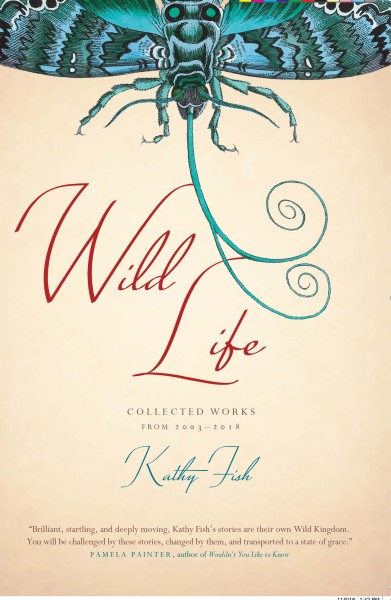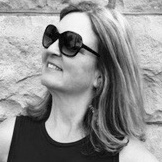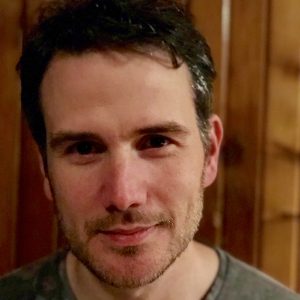
by Josh Denslow
Over the last 10 years Kathy Fish has done more than probably anyone to influence the direction of flash fiction. She’s a popular and sought-after workshop leader, a flash retreat organizer, and a champion of flash writers. In this interview Josh Denslow from SmokeLong talks to Kathy about her new collection, Wild Life (Matter Press). You can see Kathy read from the collection at the second SmokeLong reading on Thursday March 28 in Portland. And you can also see Josh read from his debut collection, Not Everyone is Special, at the same reading.
_______________________
With Wild Life being your collected works from 2003-2018, it made me think of that ten-year challenge that went around social media of people posting a picture from ten years ago and one from today. Let’s do the writer version of that! How do you think you have changed as a writer from the Kathy Fish who wrote stories in 2003 to the Kathy Fish in 2018?
Oh what a great question! What I liked about that challenge was that most people thought they looked rather better ten years on. More themselves. It’s a bit like how I feel about my writing, then and now. As if the earlier writing was me trying to find my way in to my own voice and style and aesthetic. That’s also why so many of the very early pieces didn’t make the cut for this edition of Wild Life. You know how you keep writing basically the same stories over and over again? That’s been me, sifting through the same material. I do think the more recent writing is sharper, more focused, truer to myself. But a few early stories still make me proud.
I hadn’t thought of it, but you’re right, most people did think they look better now. Imagine how proud we’ll all be of ourselves in ten more years! Is there something you’d like to explore in your writing that maybe you haven’t done yet? Something to move you toward that next ten-year milestone?
I think what you lose in skin elasticity you gain in–I don’t know–confidence? Wisdom? Self-possession maybe. I want to try everything as a writer. I’d like to write more plays (I wrote and published one, “Stop Dragging” in Hobart last year). I’d like to write prose poetry. And I’m always, always jotting down ideas for science fiction stories or a novel. My one and only science fiction piece was “A Thousand Perfect Strangers” published in SmokeLong! But I’d really like to try my hand at more. I just never go beyond the notes stage. I see a string of rejections for me in all of these pursuits, but that’s okay. I’d still like to try.
You have a rhythm in your language that can only be called poetic. You have some more straightforward fiction pieces, but others like “Faulty Keys and Latches” and “Petunias” and “Watermelons” are so visual and so reliant on your unmistakable voice. They feel like poems to me because they land in the places that poems land when I read them. Deeper. Past the parts of me where I parse reason. When you start a story, how much do you think about things like tone and plot and structure?
I feel like I have two writers in me. The straightforward, traditional writer and the more experimental and poetic writer. Yes, I think a lot of my pieces are prose poems. And “Collective Nouns” was declared a poem (and I, a poet) over and over again, so I guess I’ll own that part of me. But it’s a struggle, then, when pulling together a collection. How to make those two parts work together as a piece of art that feels organic and cohesive?
In answer to your question, I think about tone and structure a fair bit and plot, almost never. Very often, I start with a “sound” in my head. And sorry, every time I try to articulate this, I come across as kind of daft. But it’s true. You mentioned “Faulty Keys and Latches.” That began in my head when I heard Warren Zevon’s “Lawyers, Guns, and Money” on the radio. So that rhythm stuck with me. I liked how it felt in my ear. So I just plugged in some words for a title and went from there. I almost always start with sound. Gah. I’m such a weirdo.
I absolutely love this idea of a sound in your head. It actually makes so much sense to me. And here might be a good time to talk about teaching. You are an incredibly sought-after flash fiction teacher. How do you relay that “find a sound” element for each individual writer and all their unique writing styles?
You are absolutely correct that there are so many different writing styles and writers all have their own process (like I do with keying into sound and rhythm first). And that’s challenging from a teaching aspect, no question. What I say during my course, over and over, is the following: 1. Don’t overthink it. 2. Allow whatever comes. and 3. There’s no wrong way to do this. In other words, my exercises and prompts are very open-ended and non-prescriptive. I’m mostly interested in giving writers a variety of ways into their own material. What they do with it is entirely up to them!
Also, I’m a huge believer in subconscious processes in creativity. I’m always seeking out ways in which I can help writers tap into that. I think pre-writing, the sort of “dreaming on the page” that Robert Olen Butler talks about, is invaluable. So for instance, instead of just handing writers a list of words and telling them to insert them into a story, I have them do a mind-mapping exercise aimed at discovering their own word bank. Using words drawn from the subconscious leads to deep, startling work that surprises the writers themselves.
I suddenly very much want to tap into my word bank, though I’m worried it might just be disappointingly filled with the word just. But what you’re doing sounds incredible and I can see why so many writers are starting stories in your classes and then going on to publish them. Do you offer any advice to them on submitting stories as part of the class?
Ha, some days my own word bank would just be “just”s, Josh! And yes, it is a very effective exercise.
When writers get to the end of the 10-day spring of Fast Flash, they have a lot of fresh material, and my biggest advice to them is to give that new work time to cool. In rare cases, the first draft is that golden gift from heaven that needs no further editing or revision, but most new stories benefit from a little time to sit. It’s amazing how much we see that needs changing that we didn’t see before! So yes, set the drafts aside for a whole two weeks if you can. Actually, my second draft advice is not to edit or cut per se, but to find a way deeper into the material. Once you have a more fully realized piece, by all means go in with red pen in hand, ready to hone and sculpt.
Let’s shift gears and talk about one of my favorite subjects in writing: Humor. You write some truly powerful stories, but you’re also slyly funny as well. I especially like how you set expectations in story titles and then spin us around. In particular stories like “Everything’s Shitty at Price King” and “I Have Not Pushed Back My Cuticles With An Orange Stick Since The Nixon Administration” can knock the wind out of you partly because you aren’t expecting it. How much of a role does humor play in your process? And just because I’m in awe, how do you consistently go against all expectations in your stories?
I love that you say I’m “slyly funny.” I feel like I have an odd sense of humor. More weird than outright hilarious. But thanks. And humor adds so much humanity to stories and characters. It makes the sad parts sadder. I think one’s title is a great way to subvert the reader’s expectations. It’s a means of establishing voice or tone from the get-go. And then when the shift happens, the underlying grief or sadness is revealed, it’s all the more effective.
I never consciously insert humor into my stories. It seems to bubble up organically. Oh, you asked how I consistently go against expectations and I think that happens because I never know myself where a story is going. So I’m going against my own expectations a lot of the time.
I’m always happy to hear that other writers don’t know where their stories are going as they write. I’m in the same boat. I never plan anything! So I think a good place to end would be this: How do you know when a story has gotten to where it’s going?
Right? I like the idea of knowing the ending ahead of time and writing to it. I’ve just never been able to work that way.
To your question, it’s that moment when the story reveals to me the reason for its telling.
Wild Life is available from Matter Press.
___________________________
 Kathy Fish has published five collections of short fiction, most recently, Wild Life: Collected Works from Matter Press. Her stories have been featured in The Best Small Fictions, the W.W. Norton anthology, New Micro, and Best American Nonrequired Reading. She teaches for the Mile High MFA program at Regis University in Denver.
Kathy Fish has published five collections of short fiction, most recently, Wild Life: Collected Works from Matter Press. Her stories have been featured in The Best Small Fictions, the W.W. Norton anthology, New Micro, and Best American Nonrequired Reading. She teaches for the Mile High MFA program at Regis University in Denver.
 Josh Denslow’s debut collection Not Everyone Is Special (7.13 Books) actually exists! His recent stories have appeared in Catapult, Pithead Chapel, wigleaf, Okay Donkey, and a bunch of other awesome places. In addition to wearing matching sweaters with his three boys, he plays the drums in the band Borrisokane and edits at SmokeLong Quarterly.
Josh Denslow’s debut collection Not Everyone Is Special (7.13 Books) actually exists! His recent stories have appeared in Catapult, Pithead Chapel, wigleaf, Okay Donkey, and a bunch of other awesome places. In addition to wearing matching sweaters with his three boys, he plays the drums in the band Borrisokane and edits at SmokeLong Quarterly.
